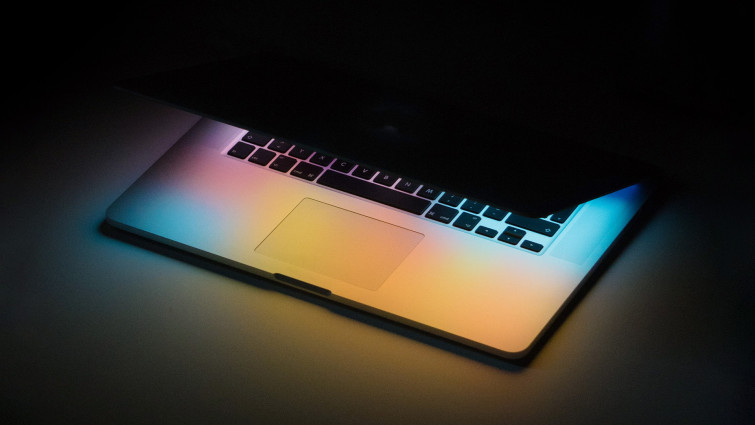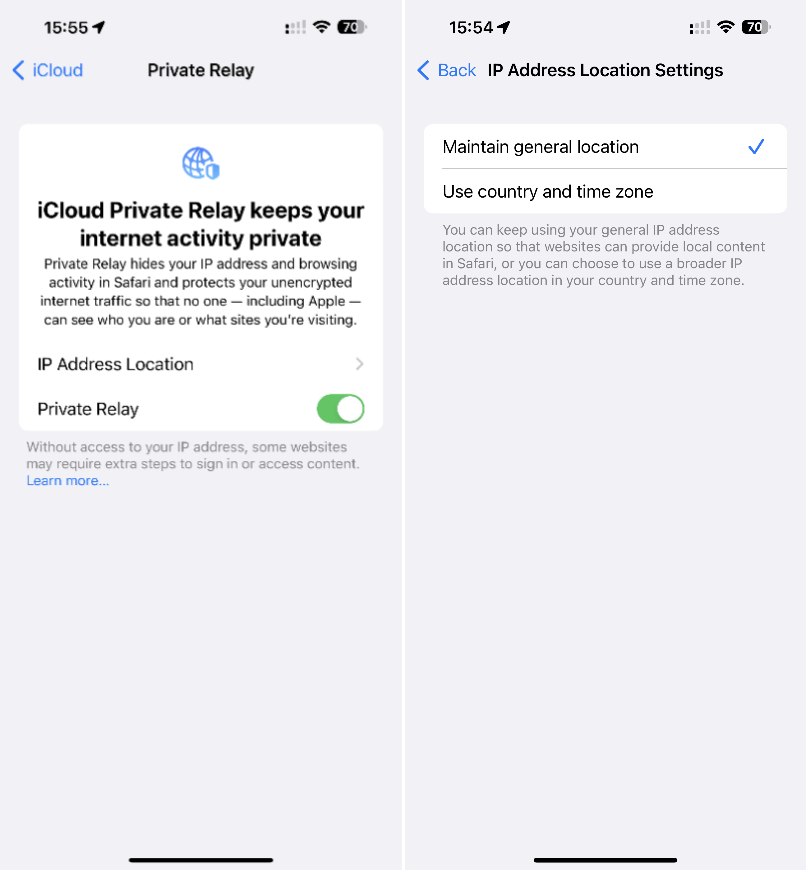Privacy
If you want to try your hand at entering the world of VPNs for a little less, then iCloud Private Relay is your friend, but is it a real VPN service? The devil is in the details.
August 31, 2023
•
,
4 minutes Read

In 2021, Apple released a new feature for its iCloud+ subscription plan, which made some people wonder why Apple would offer such a service. We’re talking about Apple’s iCloud Private Relay, a (sort of) VPN that isn’t actually a VPN at all. It’s complicated.
What is Private Relay and how it works
iCloud Private Relay is an additional service offered in the iCloud+ subscription plan. The way it works is that it basically hides your IP address and Safari browsing activity by routing it through two relay servers, one operated by Apple and the second operated by a third-party provider.
This way, when Private Relay is enabled, all of your browsing activity and data in Safari is routed through two Internet hops. First, your data is encrypted, after which it is sent to Apple, so your Internet Service Provider (ISP) cannot see any of your web browsing activities. Then, on Apple’s proxy server, the DNS (Domain Name System) request (your request to access a website) and the IP address of your iPhone, iPad or Mac are disassociated. Your IP address is logged by Apple, while your DNS request is forwarded, encrypted, to one of Apple’s partners who has the decryption key, along with a fake IP address based on your approximate location.
Sounds like a VPN, right? The act of routing Internet traffic through another server, masking your IP and location… but it’s not really a VPN for many reasons.
Why is Private Relay not a VPN?
1. Private Relay is a service reserved exclusively for Apple devices. If you have an iPhone, iPad, or Mac, after you subscribe to iCloud+, you can find the toggle to turn on private forwarding in your iCloud settings. So no, it is not available on Android or Windows.
2. Only works on Safari. While a VPN would route all your traffic through a variety of servers and locations, Private Relay is limited to traffic coming from Safari, Apple’s Internet browser. This means that your in-app activity from Instagram, TikTok, or any other browser like Chrome isn’t hidden in the same way.
3. Private Relay does not fully protect your browsing habits. By accepting cookies you can still be tracked. Additionally, since server traffic is still inextricably tied to the proxy it came from, it can still be isolated by a smart IT administrator and blocked. So, unlike a traditional VPN, traffic is not technically obfuscated.
4. Only two hops to cover the traffic can be considered missing. A traditional VPN would route it through multiple hops, connecting to a series of servers to cover your path before connecting to a website.
5. You cannot choose your geolocation. One of the main benefits of a VPN is that it can mask your location and act as if you are in another country where a specific VPN provider has a server. Private Relay, however, will only give you two options: keep a general location or use only country and time zone.

So, why use Private Relay then?
The reason Private Relay is still an interesting service is that, fundamentally, it still allows for more private browsing and, more importantly, provides additional protection for your browsing habits (on Safari, of course). Combined with an effective ad-blocking Safari extension and opt-out of tracking cookies, it presents an interesting opportunity to personalize your browsing and data-sharing habits.
Private Relay works on iOS, iPadOS, and MacOS with the same Apple ID with an iCloud+ subscription. Now, it’s not as robust or useful as a VPN, but using Private Relay can be a great and reliable option.
iPhone or Android, you should always be aware of your fingerprint
As mentioned in some of our blogs about various forms of online tracking (such as browser fingerprinting), there are many different ways to be tracked online, and often not exclusively for your own benefit.
Your personal data may be all over the internet, but luckily minimizing your presence doesn’t have to be an extremely daunting task. Here are some tips to help you without much effort:
- Reject cookies – The easiest step (sometimes) is to reject cookies used to collect data for advertisers. Thanks to GDPR and other privacy regulations, you can often just click “opt out” in the short pop-up windows that appear when you access a website.
- Use a VPN – While it doesn’t completely cover your tracks (fingerprinting can still collect device data), VPNs obfuscate your IP, meaning it’s much harder to estimate your location.
- Don’t overshare – Especially on social media, try not to share too much personally identifiable information. The more data there is about you online, the easier it will be for scammers to target you.
Bottom line, whether you’re using Private Relay, a VPN, or taking a more privacy-focused approach, having more control over your online data is a good thing. And every step you take towards complete privacy can make your life more (cyber)secure.
Before You Go: Apple Pay and Security: What You Need to Know
